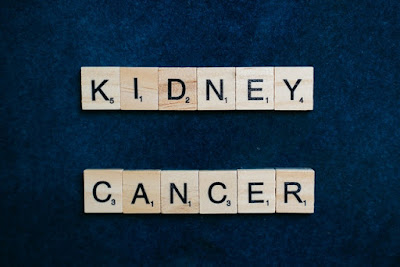 |
| Recognize the Causes of Kidney Cysts and How to Overcome It |
Kidney cyst is a condition characterized by the formation of fluid-filled sacs in the kidney tissue. This condition usually causes no symptoms. However, when it grows big and presses other organs, treatment needs to be done immediately to prevent complications.
Kidney cysts generally appear in one kidney only, but can also grow in both kidneys. Small cysts often do not cause symptoms. However, if the size increases, symptoms can also appear and usually include low back pain, dark urine, fever, to swelling in the abdomen.
Kidney cysts are usually detected accidentally when a person does a medical check-up or undergoes imaging tests, such as CT scans and MRIs of the kidneys to detect other health problems.
Causes of Kidney Cysts
The cause of kidney cysts is not known with certainty. However, one theory suggests that kidney cysts can develop when the surface lining of the kidney weakens and forms a sac. This sac then fills with fluid and eventually develops into a cyst.Anyone can experience kidney cysts. However, men are at risk of 2 times higher for this disease. The risk of developing kidney cysts also increases with age.
Although this still needs to be investigated further, data shows that about 25% of people get kidney cysts when they are 40 years old. While in the elderly aged 50 years, found as many as 50% who suffer from kidney cysts.
How to Overcome Kidney Cysts
In most cases, kidney cysts do not require treatment if there are no symptoms and there is no decline in kidney function. However, you still have to have regular check-ups to find out the possibility of an enlarged cyst in the future.If on examination the size of the cyst appears to be getting bigger, the doctor will recommend certain actions to remove the kidney cyst. The reason, this condition can make the function of the kidneys and other organs disturbed.
As a result, symptoms such as fever, frequent urination, urine containing blood, abdominal pain, and back pain may appear. To treat enlarged kidney cysts, doctors will usually recommend actions such as:
Aspiration and sclerotherapy
One of the actions that can be taken to treat kidney cysts is cyst aspiration and sclerotherapy. This procedure involves injecting a long, thin needle into the cyst to drain or suck out the fluid inside.After the fluid is removed, the cavity or sac of the cyst will be filled with a special fluid. The goal is that the tissue hardens and does not trigger the cyst to form again.
Laparoscopy
Surgery to remove the cyst can also be a last resort, if the cyst is too large and causes severe pain, infection, hematuria, or high blood pressure. When the surgical procedure to remove the cyst is performed, the doctor will perform anesthesia.
That's the cause and how to deal with kidney cysts that need to be known. Although most cases of kidney cysts do not cause symptoms and do not decrease kidney function, you should not take them lightly.
If you are diagnosed with kidney cysts, do regular check-ups with your doctor. This is important to minimize the risk of complications, such as kidney infection, ruptured cyst, or hydronephrosis.
Related Search:
- kidney cysts,
- what causes kidney cysts,
- food to cure kidney cysts,
- kidney cysts symptoms,
- can kidney cysts cause pain,
- kidney cysts treatment,
- are kidney cysts common,
- what percentage of complex kidney cysts are cancerous,
- what percent of complex kidney cysts are cancerous,
- are kidney cysts dangerous,
- kidney cysts cancerous,
- types of kidney cysts,
- multiple kidney cysts,
- can kidney cysts be cancerous,
- do kidney cysts cause pain,
- bilateral kidney cysts,
- fetal kidney cysts,
- kidney cysts cancer,
- what foods should i avoid with kidney cysts,
- kidney cysts causes,
- pictures of kidney cysts,
- how common are kidney cysts,
- complex kidney cysts symptoms,
- kidney cysts rupture,


